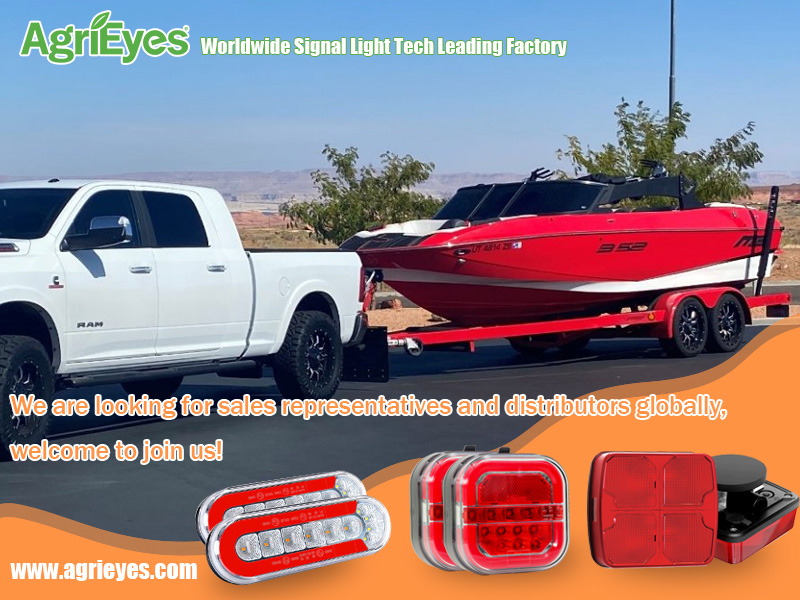Safety and convenience are factors in choosing trailer lights. In terms of safety, the trailer lights need to include a variety of functions such as running lights, brake lights, turn signals, back-up lights, etc., and be bright enough for other vehicles to notice you. Choosing wireless or wired trailer lights will determine your towing experience. Both alternatives have advantages and disadvantages, and understanding the differences will allow you to make an informed selection that best meets your needs.

Wireless Trailer Lights: The best thing about wireless trailer lights is that they are easy to install. No need for wiring, you can install them in just minutes. Just connect the lights to your trailer, insert the transmitter into your vehicle, and you're ready to start. This feature is especially important for people who lack mechanical abilities or must frequently replace their lights between many trailers.
Wired Trailer Lights: Wired trailer lights are the more typical installation option. This often entails connecting cables from the car to the trailer, necessitating some installation skills and the preparation of installation gear, which can be time-consuming, especially if the wiring is complex. Wired trailer lights are of the permanent mounting type, providing a more permanent solution with essentially no signal connection to consider.
Wireless Trailer Lights: While wireless technology has come a long way, some users consider signal interference and power usage hours. In order to connect with your car, wireless trailer lights use a radio signal, which can occasionally be interfered with by other electronics or obstacles. Additionally, you’ll need to monitor battery levels, as running out of power can leave you without functioning lights.
Wired Trailer Lights: Wired trailer lights are generally viewed as more reliable in terms of consistent performance. They don’t depend on batteries or signals, which means you won’t have to worry about interruptions or connectivity problems. As long as the wiring is intact, wired lights will function every time you tow.
Wireless Trailer Lights: Another advantage of wireless lighting is its adaptability. They may be simply transported between trailers without the need to detach and reconnect wiring. This functionality is very useful for individuals or firms who employ many trailers for different reasons.
Wired Trailer Lights: While wired lights are typically more permanent, they can be more challenging to transfer between trailers. If you regularly switch trailers, you may find the wired setup cumbersome. Nevertheless, wired lights are typically built to withstand more demanding tasks and can be incorporated into the vehicle's electrical system for a stronger solution.
Wireless Trailer Lights: Because of the technology required, wireless trailer lights are often more expensive up front. They do, however, save you time and money that may otherwise be spent on installation or wiring changes for your trailers.
Wired Trailer Lights: Wired lights are going to be cheaper initially, but require a professional installer and some installation tools, this requires the tow truck driver to have repair skills themselves, otherwise, if repairs are needed, troubleshooting a wired trailer light can sometimes be more complex and costly.

Choose wireless or wired trailer lights ultimately depends on your specific needs technical capabilities. If you are looking for quick installation, or if you need to move around multiple trailers, then go straight to wireless trailer lights! If a permanent installation and a more reliable signal connection is required, then wired trailer lights are a better choice. Whichever you choose, ensuring your trailer is equipped with quality lights is essential for safe and effective towing.